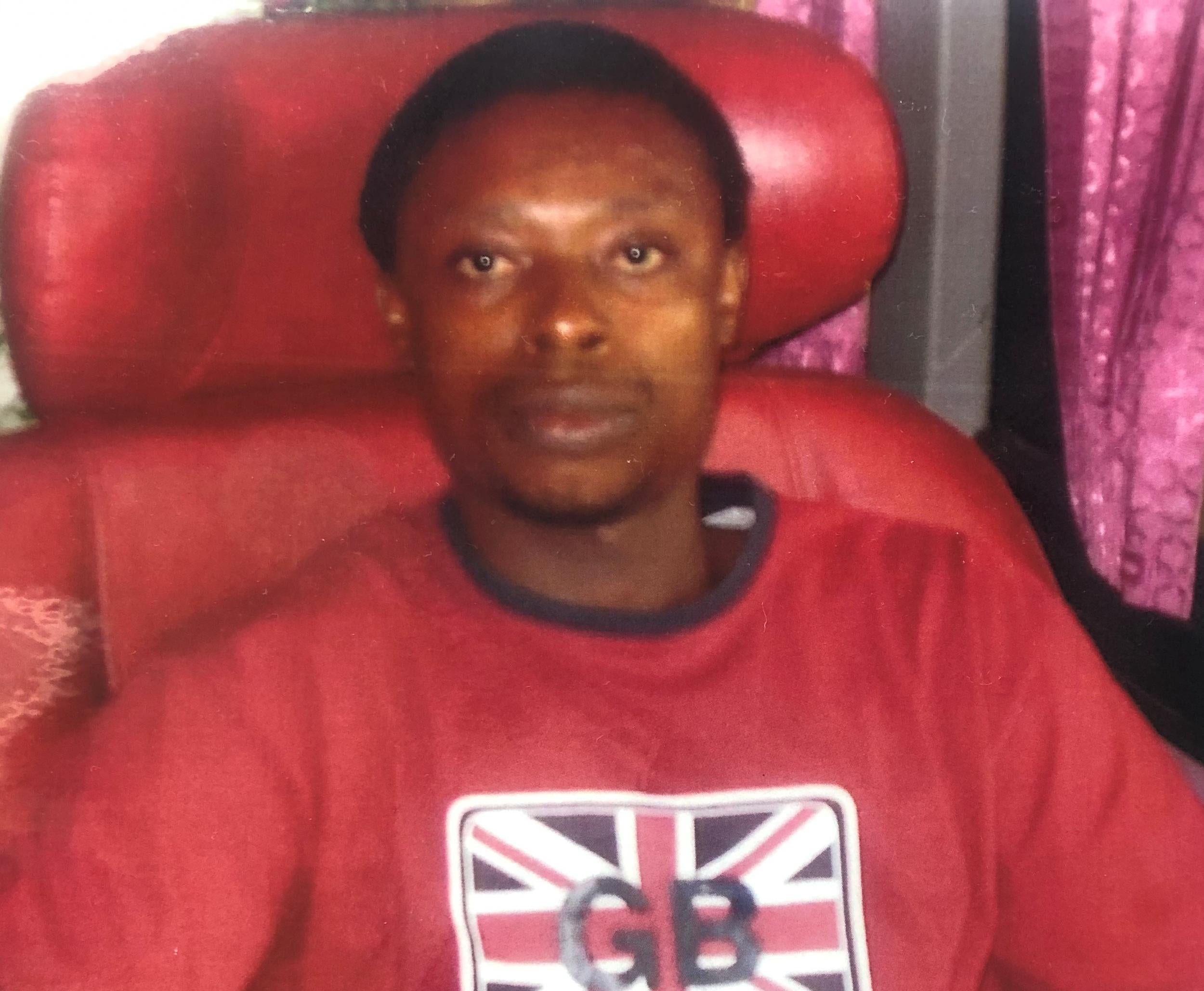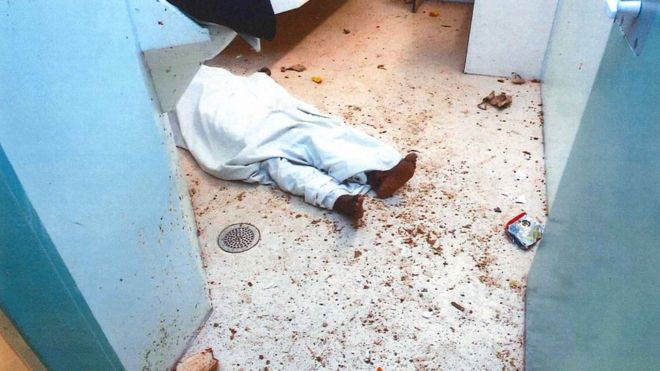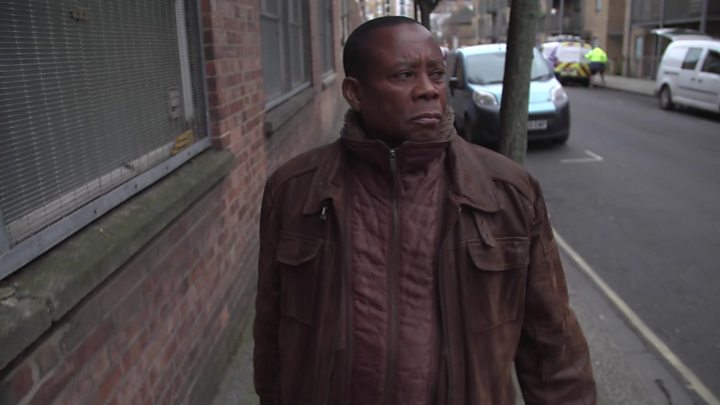The findings of an inquest reveal a mentally ill Ghanaian died from malnutrition, dehydration and hypothermia “in plain sight” at an immigration center in Harmondsworth.
The jury said Prince Kwabena Fosu, 31, died as a result of “gross failure” on the part of the agencies at the center.
Fosu received a valid business visa from Ghana before arriving in the UK in April 2012, however, it was revoked at Heathrow Airport, BBC reported.
An appeal into his matter was launched by him in September 2012 but it was rejected.
He was arrested in October that same year after a passer-by phoned the police after seeing him walking naked on a road in Kettering, Northamptonshire.
On arriving at Corby station, officers said he continued acting strangely and kept undressing, but medical officers said he did not need to be sectioned.

He was in an isolation cell for six days and left to sleep on the floor without beddings as he suffered from a psychotic illness.
According to The Home Office, the care standard offered to Fosu was inadequate and “unacceptable” and now new safeguarding measures have been introduced.
Coroner Chinyere Inyama said that “almost unbelievably” Mr Fosu died “in plain sight” of many people at Harmondsworth Immigration Removal Centre.
Tony Smith, a member of the Independent Monitoring Board (IMB) told the jury at the inquest; “Mr Fosu died in plain sight. We let him down big time.”
Jurors at the West London Coroner’s Court discovered that measures to protect vulnerable detainees at the center were highly ineffective.
Unfortunately, it can be said that the agencies at the helm of affairs at the center turned a blind eye to Fosu’s condition. They failed to monitor, respond and even recognise the deteriorating condition of a man incapable of caring for himself, the findings revealed.
In the Jury’s conclusions, stripping the bedding and mattress from his cell without any legally approved authority note was a clear indication of the “casual approach” the agencies at the center had to Fosu’s welfare, the Independent reported.

At the time of Fosu’s arrest in 2012, CCTV footage in the station recorded him being told: “You’re going to an immigration center. They are going to look after you. Yeah?”
Regardless of police officer’s concerns, medical assessment at the time said Fosu was fit to be detained and on October 24, 2012 he was transferred to Harmondsworth IRC.
In detention, Fosu was seen a couple of times ranting into a mirror and at a point restrained and put into segregation shortly after his arrival.

Sadly, he was found dead six days later in a dirty isolation cell at Harmondsworth Immigration Removal Centre.
The management at the center was thrown in disarray after the previous provider had been “sacked” the year before, a healthcare manager told the inquest.
A nurse recalls at the inquest how she accessed Mr Fosu in five minutes without sighting his medical notes. She later mentioned at the inquest that she had done a “completely inadequate assessment” and was “out of her depth”.
Three doctors, Wesley Joseph, Anna Sharif and Kirpal Singh have been subjected to review based on the way they cared for Fosu by the General Medical Council.
While the deceased was in segregation, he lost 15% of his body weight. He arrived at the facility when he was 55kg (8st 9lb) and then dropped to 47kg (7st 6lb) in a matter of days.
His father, Prince Obeng said his son was of good behavior and quiet and had not exhibited signs of ill health.

“I never knew that things like this could happen in Europe,” he said. “The Home Office has not been in touch with me but I would like them to apologise for their failure to protect Prince.”
He also criticised how long it had taken authorities to hold the inquest. “When Prince came to the UK for a visit his daughter was just one year old. Now she is eight.”
Sue McAllister, Prisons and Probations Ombudsman (PPO), speaking after the inquest said it was “inhuman and degrading” for Mr Fosu to have been “segregated, living naked in a room dirty with faeces, urine and uneaten food” with no explanation or review of the quarantine.
McAllister said: “I very much regret that the lengthy delay will inevitably diminish the impact of this (PPO) report and make it more difficult to hold those involved properly to account.
“This is a very troubling case. Mr Fosu spent six days at Harmondsworth, and apart from his first few hours, he spent his time segregated, living naked in a room dirty with faeces, urine and uneaten food, without a mattress or bedding. He did not eat for much of this time and rarely engaged with staff.
“I am particularly troubled that Mr Fosu lived in an unfurnished room without proper justification or review, which I consider to be inhuman and degrading. I consider that IRC managers were responsible for a culture which I can only describe as uncaring.”
It is inevitable that caring for Fosu at the center came with its own challenges, however, the PPO added that, “We consider that the care he received fell considerably below acceptable standards.”
The Home Office has now introduced “the Adults at Risk policy and increased monitoring of vulnerable people in detention” after Fosu’s demise, a spokesperson said.










